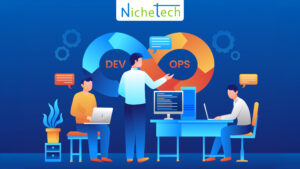Custom software development has long been the answer for businesses looking to solve unique challenges, automate workflows, and drive growth. With the integration of Artificial Intelligence (AI) and Machine Learning (ML), custom software has reached new heights, offering smarter, faster, and more efficient solutions. Let’s dive into how AI and ML are transforming the world of custom software development and helping businesses achieve optimal results.
The Role of AI and ML in Custom Software Development
AI and ML bring transformative capabilities to custom software, enabling systems to learn, adapt, and make decisions without explicit programming. This shift empowers developers to create applications that continuously improve over time. Here’s how these technologies are influencing custom software development:
Automation of Complex Processes
AI and ML automate repetitive and time-consuming tasks, such as data processing, fraud detection, and predictive maintenance. This not only boosts productivity but also minimizes human error.Data-Driven Decision-Making
Custom software powered by AI can analyze vast amounts of data in real-time, uncovering trends and insights that drive smarter decisions. For example, AI-enabled CRMs provide actionable recommendations for improving customer interactions.Enhanced User Experience (UX)
Machine learning algorithms analyze user behavior to create intuitive interfaces that adapt to individual preferences. Personalization, predictive search, and conversational AI are just a few examples of how AI enhances UX.Predictive Analytics for Future Planning
ML models can predict outcomes by analyzing historical data, allowing businesses to forecast trends, identify risks, and prepare for the future. For example, a logistics company can use predictive analytics to optimize delivery routes.Smart Integrations
AI-powered APIs can seamlessly integrate with existing systems, enabling custom software to connect with IoT devices, third-party applications, and data pipelines.
Key Applications of AI/ML in Custom Software Development
Natural Language Processing (NLP)
Custom software using NLP can understand and process human language, enabling applications like virtual assistants, chatbots, and sentiment analysis tools. This enhances customer support and improves engagement.Image and Video Recognition
Industries like healthcare, retail, and security are leveraging AI for tasks like facial recognition, object detection, and quality assurance. For example, custom medical software can identify anomalies in X-rays using AI.Recommendation Systems
Retail and e-commerce platforms are using AI-driven recommendation engines to personalize shopping experiences. These systems analyze user behavior to suggest products and services effectively.Process Optimization
Manufacturing and logistics industries are using ML algorithms for inventory management, demand forecasting, and supply chain optimization, reducing costs and improving efficiency.Fraud Detection and Cybersecurity
Custom software with AI can identify suspicious patterns, unauthorized access, or potential breaches, bolstering cybersecurity. Financial institutions often use ML to detect fraudulent transactions in real time.
The Benefits of AI and ML in Custom Software Development
Scalability
AI-powered custom software can handle increasing data and user demands, making it suitable for businesses of all sizes.Adaptability
Machine learning enables software to adapt to changing environments, ensuring long-term relevance and performance.Cost Efficiency
Automation and predictive maintenance reduce operational costs, while smarter analytics lead to more effective resource allocation.Competitive Advantage
Businesses that adopt AI and ML in their custom software solutions can stay ahead of competitors by leveraging cutting-edge technology.
Challenges in Integrating AI/ML in Custom Software
While the benefits are significant, integrating AI and ML into custom software development comes with its challenges:
Data Quality: AI models require vast amounts of high-quality data for training. Poor data can lead to inaccurate results.
Development Complexity: Building and deploying AI/ML models require specialized expertise, which may increase development time and cost.
Ethical Concerns: Issues like data privacy, bias in algorithms, and transparency must be addressed.
Infrastructure Requirements: AI and ML models demand significant computational resources, which can be a barrier for smaller organizations.
Future Trends in AI/ML-Driven Custom Software
AI-as-a-Service (AIaaS)
AI platforms from cloud providers like AWS, Azure, and Google Cloud are simplifying AI integration into custom software, reducing development time.Federated Learning
Federated learning enables AI models to learn from decentralized data sources, enhancing privacy and efficiency. This approach is gaining traction in healthcare and finance.Explainable AI (XAI)
As businesses demand more transparency, explainable AI will ensure that custom software solutions provide clear reasoning for decisions made by AI systems.Real-Time Edge AI
With advancements in edge computing, custom software will process AI tasks locally, offering faster responses and enhanced security.Low-Code and No-Code AI Development
Tools for low-code and no-code development are democratizing AI, allowing businesses to integrate machine learning into their custom software without extensive programming knowledge.
Custom Software for 2025 with AI ML
AI and ML are redefining the boundaries of what custom software can achieve. By integrating these technologies, businesses can create highly intelligent, efficient, and scalable solutions tailored to their unique needs. The future of custom software lies in its ability to harness AI and ML for optimal results, unlocking unparalleled innovation and value.
Now is the time for organizations to embrace these advancements and invest in AI-powered custom software to stay competitive in an ever-evolving digital landscape.







